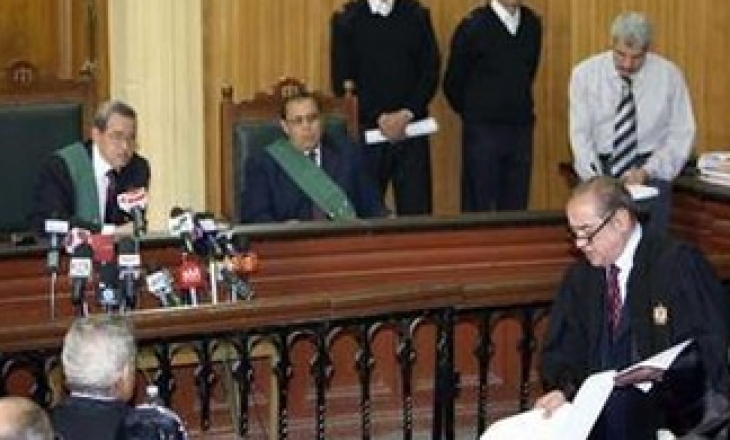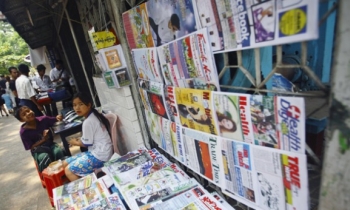Editors of Egyptian newspaeprs Al- Masry Al-Youm and Al-Wafd and three other journalists have been summoned to appear in court in connection with a ban that has been placed on the publication of any material concerning the Susan Tamim murder case, the Arabic Network for Human Rights Information (ANHRI) has reported.
On November 22, the prosecution investigated Magdy el-Gallad, the editor of the independent Al-Masry Al-Youm newspaper, and journalists Yousry el-Badri and Farouk el-Dasouki. Abbas el-Tarabili, the editor of Al-Wafd newspaper, which is the mouthpiece of the Al Wafd Party, and a journalist from the same newspaper, Ibrahim Qaraa, were also questioned. Although all of the journalists were released, the prosecutor has referred their cases to the court in Sayeda Zaineb, calling for the them to appear on December 4.
The decision to ban the publication of any information on the Tamim case is the fourth such ruling in less than three months, and the second in relation to this particular case. The prosecutor issued an order banning the publication of information during the investigations into the Tamim case in August, then a further decision was made to ban publication of information regarding a bribery lawsuit against an Egyptian businessman close to the ruling circle in September. The third case involved the abduction of foreign tourists in southern Egypt, also in September, and finally the fourth resolution again concerned the Tamim case. This has had the undesirable result of five journalists being brought to trial for allegedly violating the ban.
The number of journalists and newspapers prosecuted on the same charges is expected to increase, according to ANHRI, in the near future to include three other government-controlled newspapers, bringing the number of newspapers affected by the decisions to eight: Al-Masry Al-Youm, Addustour, El-Badeel, Al Tareeq, Al-Wafd, Al-Ahram, al-Gomhuria and el-Akhbar. These prosecutions will in turn affect eight editors: Magdy el-Gallad, Ibrahim Mansour, Khalid Alblshi, Gamal Assi, Abbas el-Tarabili, Osama Saraya, Mohamed Ali Ibrahim and Mohamed Baraket, in addition to nine other journalists from the same newspapers.
The decision to bring the editors of the Al-Masry Al-Youm and Al-Wafd newspapers to trial for allegedly violating the ban, which carries with it the threat of one year in prison and a fine, comes despite an appeal brought by ANHRI, which should be considered by the administrative judiciary on December 9, a mere five days after the trial of the first five journalists.
In its appeal, ANHRI has confirmed the unlawfulness of the bans on publication, in as much as they violate the Egyptian Constitution and Article 19 of the International Covenant on Civil and Political Rights, which is part of the Egyptian legal system. They have also proved that the attorney-general's decision is administrative rather than judicial, which nullifies it by effectively giving the prosecutor both powers of investigation and accusation. This can only lead to further conflicts of interest between the roles of the administration and the judiciary.
In a statement, ANHRI said, "What threatens society and jeopardises its rights is the lack of free circulation of knowledge and the shackling of the press. But while things in Egypt seem to be moving backward, we are still confident that the corruption of certain circles in Egypt will never stop the press from fulfilling its role, and thus we must support these journalists."










